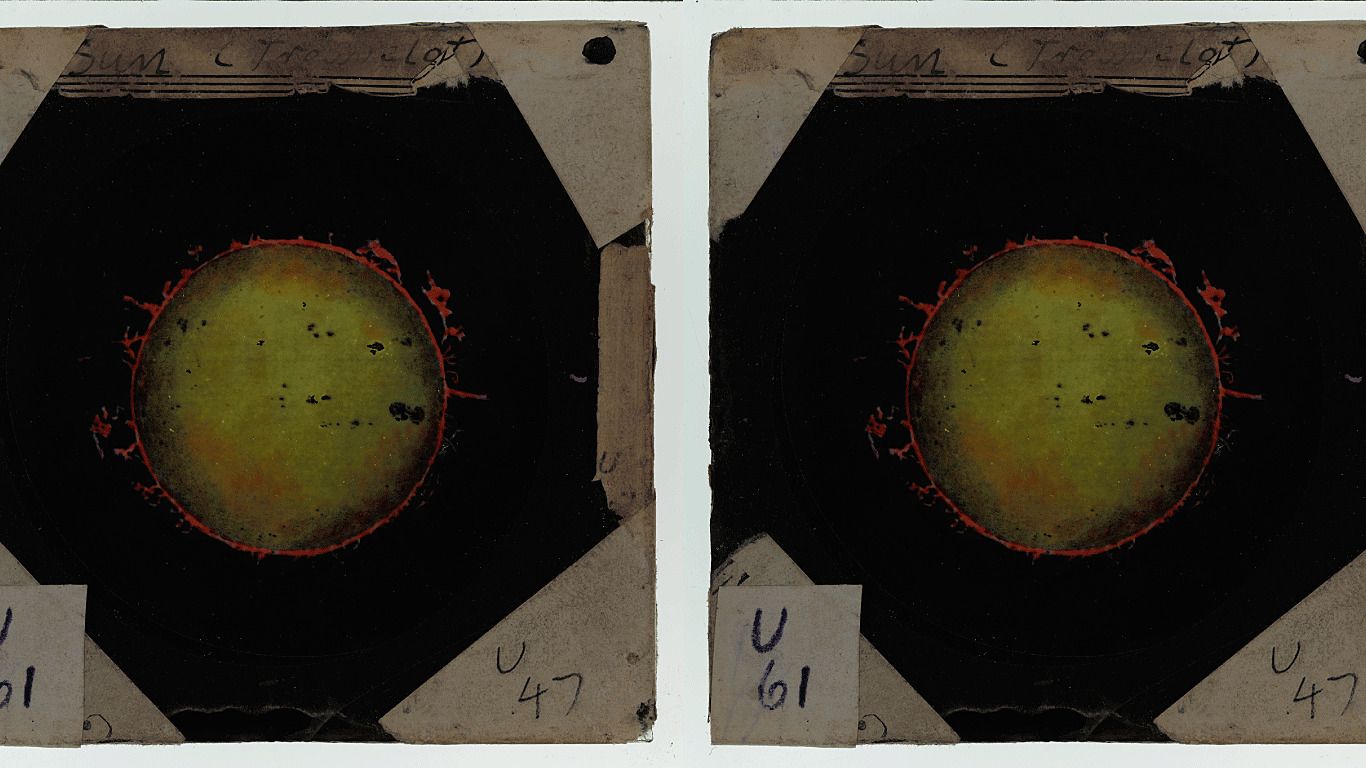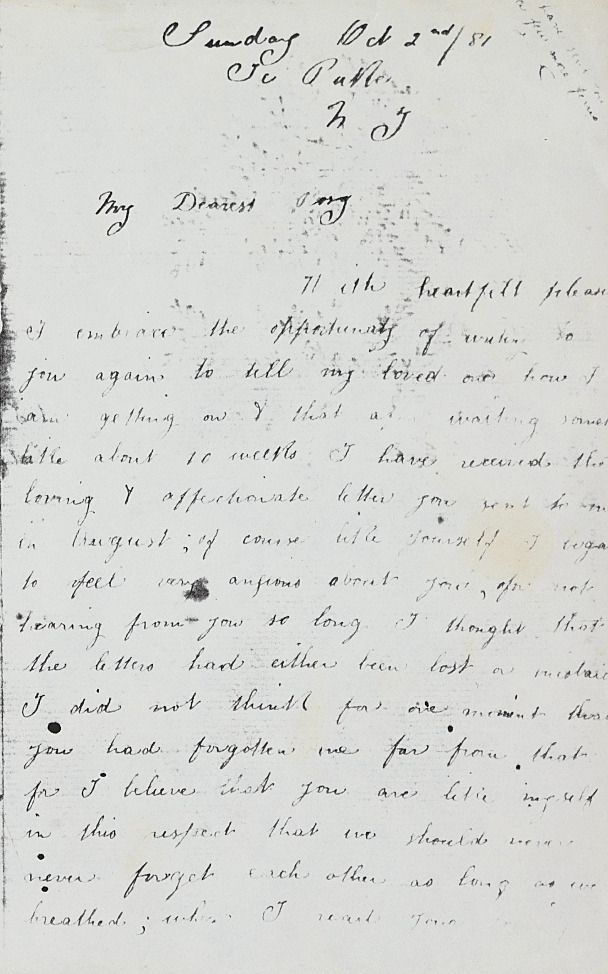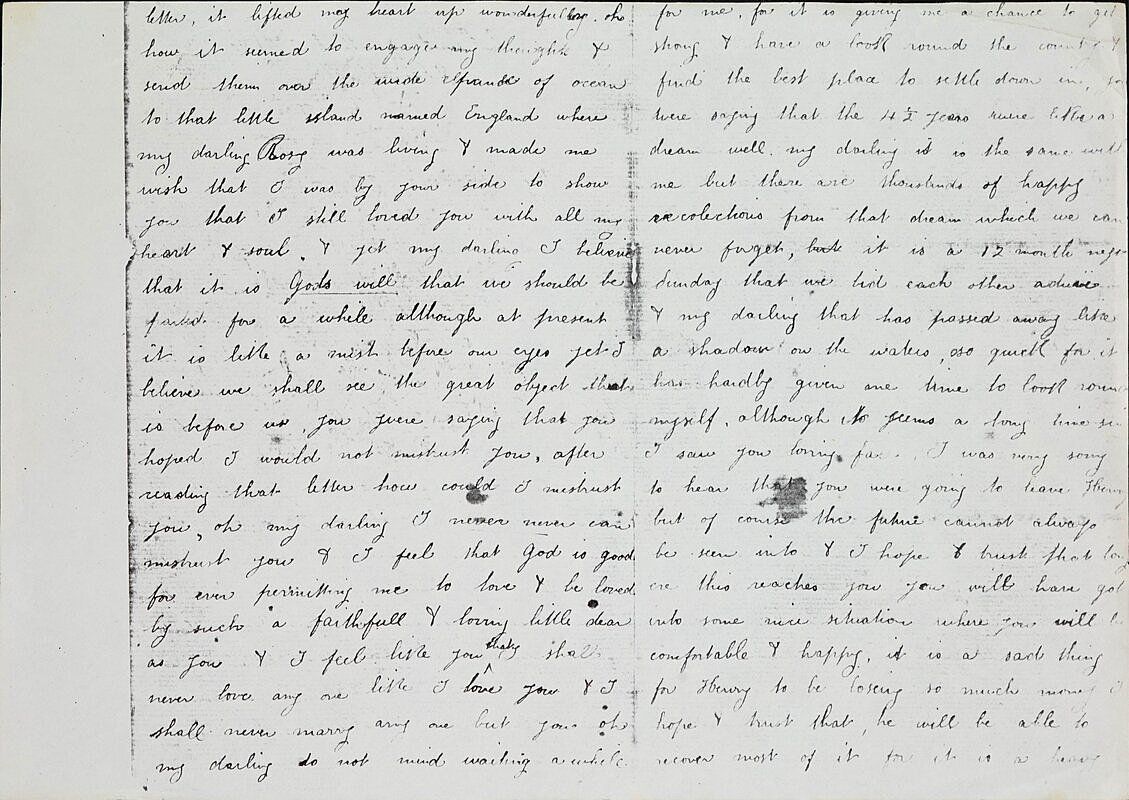Writing as the Bridge Between Oblivion and Immortality
Curator Nina Finigan on the exhibition Love & Loss and how the digital and paper messages we pen to our loved ones transmute the limitations of time and space.
A blank page or a screen is the fertile ground on which we create entire universes. They are spaces where souls mingle, hopes are manifest and hushed desires spoken into being.
Through writing we are time travellers. We revisit people and places from long ago that otherwise exist only in our memories. We can conjure unknown futures. Through writing we even have the power to grant immortality. This magic is a process of transmutation and it is miraculous.
These ideas form the basis of Love & Loss, an exhibition at Tāmaki Paenga Hira Auckland Museum drawing from the museum's manuscript collection and items loaned from the public. This exhibition reframes these documents, letters, diaries, emails and text messages – often dismissed as ordinary and everyday – as artefacts that hold our emotional lives and allow us to do extraordinary things.
Not just about words from within museum collections or from the hands of poets, this story – the story of words and writing and how they bind us – belongs to us all. In this way we are all magicians.
-
The practice of alchemy concerns transmutation – the transformation of one substance into another. To the alchemists of old this meant transforming an inexpensive substance into something more precious, like gold or silver. Although a physical transformation was sought, ancient alchemy was, as writer Paul Kingsnorth states, “as much about the transformation of the soul and the spirit as it was about any changes on the physical plane.”
Writing is a form of alchemy, too. The transmutation occurs when shapeless thoughts begin to gather and swell as pen is brought to paper. Ink hits the page and worlds are written into being. In this space of unbridled possibility, where we are not limited by the laws of the physical world, we begin to sketch the outline of our desires – those which were previously unformed.
The ubiquity of the written word means that we forget about its magic. We write a letter to a loved one or fire off a text message without much thought to the alchemy taking place through our fingertips. But look closely and we will see that even the most humble piece of writing has the potential to alter the universe.
-
After arriving in Aotearoa in 1880, after months at sea aboard the Pleiades, H Alexander writes to his sweetheart, Rosy:
... when I read your letter, it lifted my heart up wonderfully. Oh how it seemed to engage my thoughts & send them over the wide expanse of ocean to that little island named England where my darling Rosy was living & made me wish that I was by your side to show you that I still loved you with all my heart & soul.
This passage sits within a photocopied manuscript in Auckland Museum’s documentary heritage collection – H Alexander’s shipboard diary written in the form of a letter to Rosy. These documents are gateways to another plane. Although separated by that “wide expanse of ocean”, within the two-dimensional world of this diary, the space between the lovers falls away and, unburdened by geographical separation, they can be together. This is the moment of alchemy – the transformation of lead into gold.
H Alexander’s letter to Rosy.
*
Although memories lose their shape as time moves around us, documents like this offer an “antidote to the ephemerality of life.” We do not know the writer’s first name or Rosy’s last name. We do not know if the lovers were ever reunited and, if it still exists, the location of the original document is unknown to us. Extraordinary and full of love, hope and desire as this relationship was, this photocopy may be the only tangible evidence that it ever existed. And yet it endures. As a photocopy in a museum in Tāmaki Makaurau, Aotearoa. A bridge between oblivion and immortality.
-
And what about now? How do marks on a page compare to symbols on a screen? We tend to put less value on digital communication, the lack of ‘thingness’ or tangibility seemingly denoting diminished worth. But these are still sacred spaces capable of providing the same vital and magical function as the blank page offered H Alexander and Rosy.
This is perhaps most starkly realised when looking at grief in the digital age. While in the past we could place tangible reminders of our loved ones in a box or a drawer, we now carry them around with us everywhere we go. What does this mean for our grieving processes? Does it make it harder to let go of a loved one who has passed away, or an ended relationship? Probably. But it also means that their presence remains within reach.
Within Love & Loss sits a reproduction of a Facebook message thread between a woman, Rose, and her mother, who had passed away six months earlier. Rose writes of her holiday in Vietnam, but mainly to tell her mother how much she misses her and how life’s joys are muted without her:
It’s six months today since you passed; I want to say left me but I know that is not fair – I’m sorry for thinking it. But I miss you mummy so much. I’m so sorry that I’m selfish about you going but I would give so much for one more talk with you. I love you mummy – I love you I love you I love you xxxx
Familiar and ubiquitous though they may be, digital messages offer a connective thread across time and space. Reaching across the void, they offer us a reprieve from mortality.



